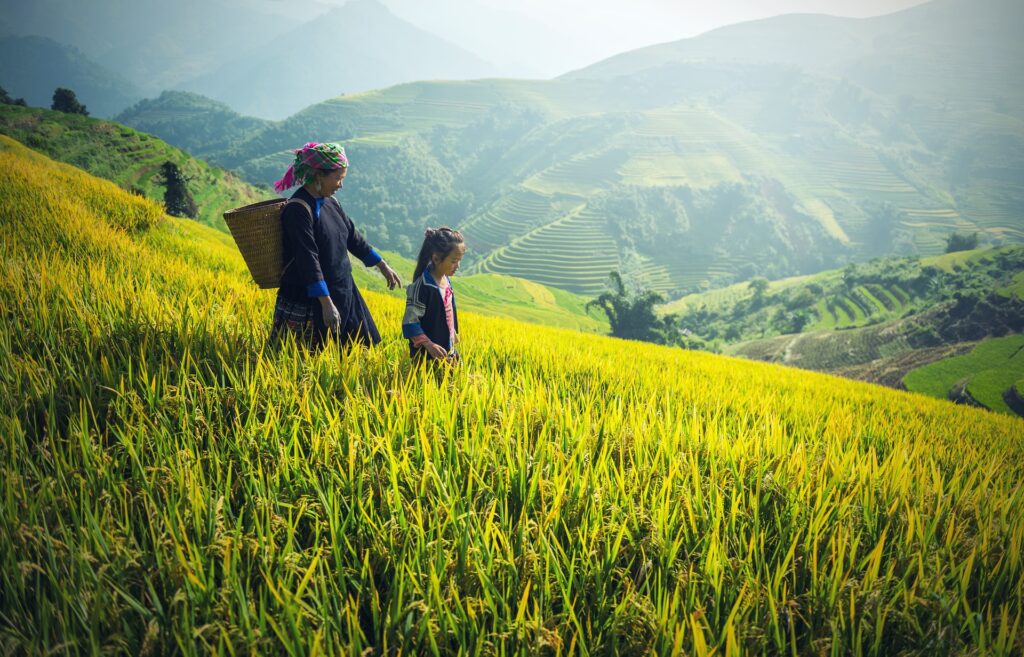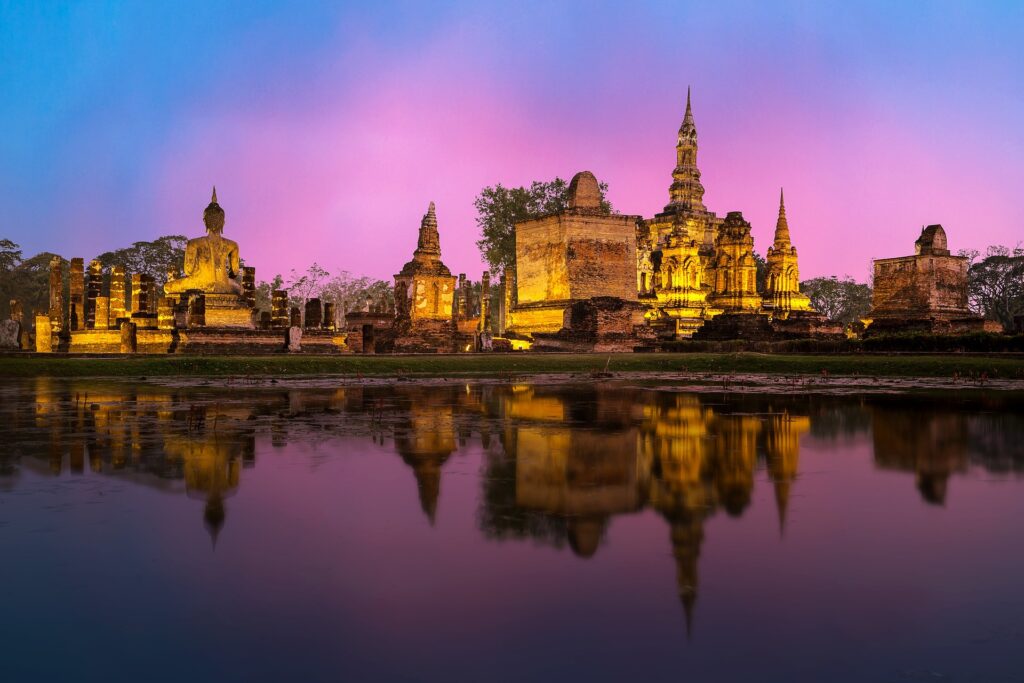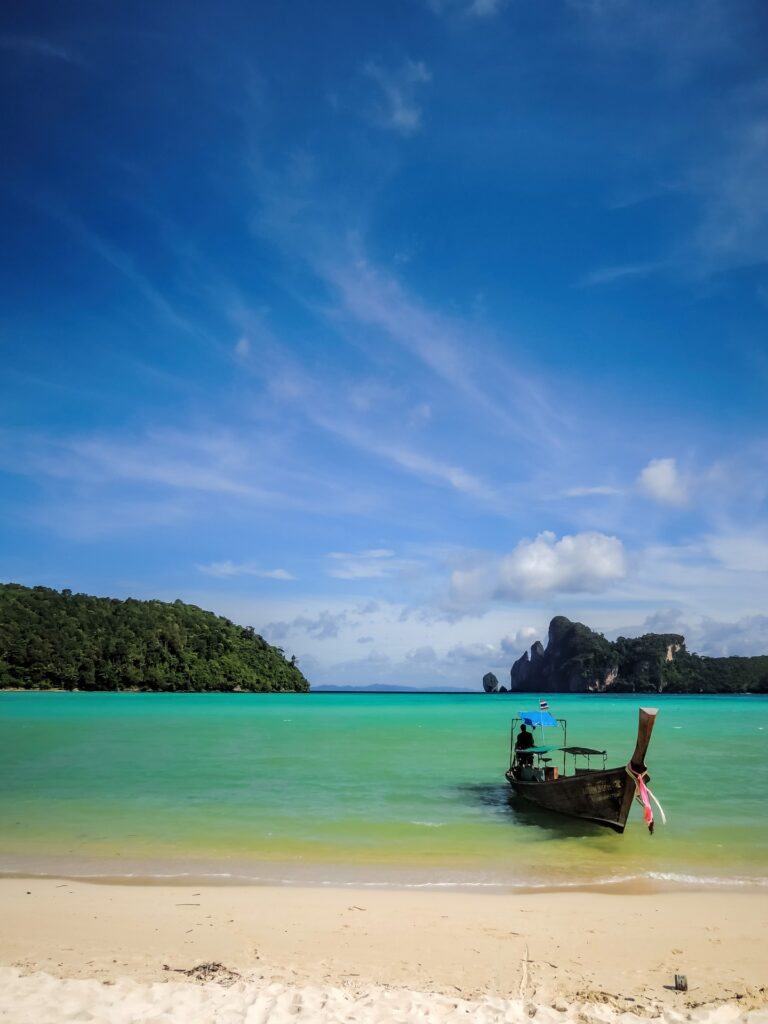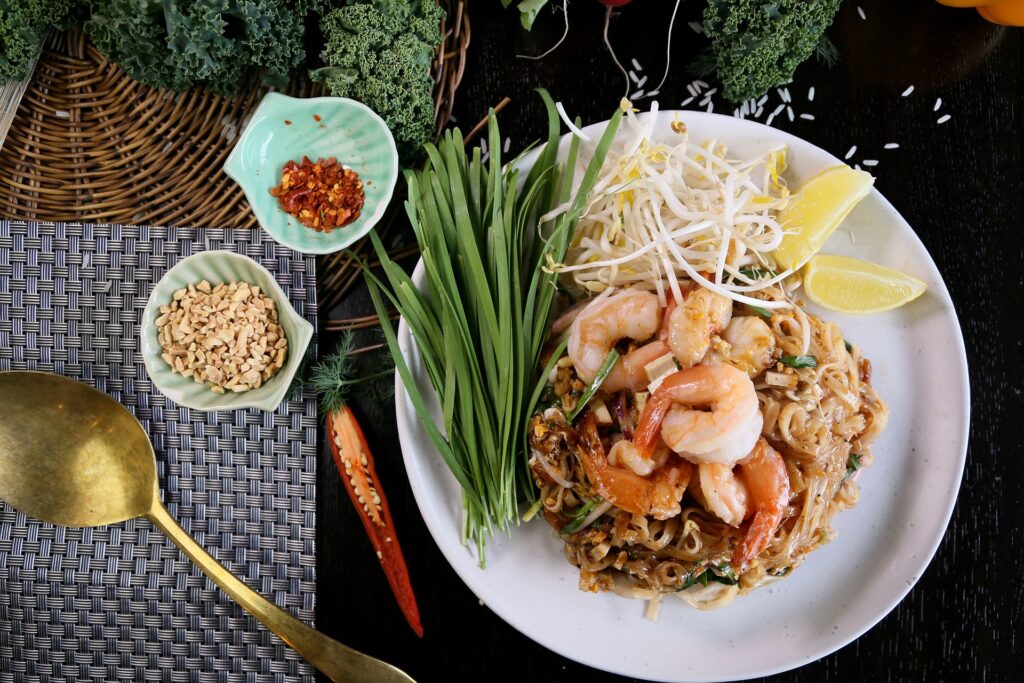Call us now (+1) 646-693-8373
| Destinations | Contact Us |
Call us now (+1) 646-693-8373
| Destinations | Contact Us |
Call us now (+1) 646-693-8373
| Destinations | Contact Us |
Best Thailand Tours – A journey across “The Land of Smiles” will take you through a nation rich in diversity. Thailand has so much to offer—from the lively city of Bangkok to quiet hill villages and the picturesque islands off the coast—that it’s the kind of country that visitors fall in love with after only one trip. Indulge in the breathtaking landscapes, interesting history, delectable cuisine, beaches, mountains, towns, and, above all, the wonderful people who will make your journey unforgettable.
Uniquely, we connect you to the authentic Thailand. Thailand offers something for everyone, from verdant rainforests and tropical fauna to pristine beaches and enchanted cascades. Floating markets protrude from ancient ruins that contrast with glistening temples, where delectable street food stands. From the villages of Chiang Mai to the decaying ruins of Ayutthaya and the technicolor reefs of Phuket, an Eskapas Thailand vacation will transport you there. We shall traverse the dynamic floral markets of Bangkok, embark on an antique rice barge cruise along the Chao Phraya River, and ascend the historic Bridge over the River Kwai. Explore with us and discover an infinite number of possibilities.
Find the right adventure by using our convenient search and filter options, tailor-making a journey that captures World’s unique beauty and rich heritage just for you.
Thailand is home to a diverse range of attraction and takes care of the touristy needs of all kinds of travelers. From those looking for majestic monasteries to explore Buddhism to the ones looking for offbeat attractions like the floating markets, Thailand ensures your requirements are met. To help you plan better, check out our expert recommendations.
Although the climate varies throughout Thailand, you can visit all year round. The best season to visit Thailand is from November till early April. This is when the heavens are no longer pouring and the sky clears up. The days are warm and perfect for an outing at the beach or for checking out the numerous heritage sites. April onwards the heat gets oppressive and June is the start of the rainy season again.

Thailand, the jewel of Southeast Asia, is also known as the Land of Smiles and you will notice its people greeting you warmly as though you are a long-lost friend returning home. The country is developed enough to offer you a luxurious holiday at some of its ultra-modern cities, like Bangkok and Chaing Mai. And yet it retains enough of its natural wildness to offer you holidays that go off the beaten path to give you a once-in-a-lifetime-experience.
Beaches, mountains, islands and everything in between, Thailand is a unending potpourri of unusual experiences that will leave you asking for more. Whether you are planning a holiday with your family, or have decided to head there with friends, Thailand offers you much to see and enjoy.
Songkran, which is the Thai New Year, is celebrated in the middle of April every year, usually between 13 to 15 April.

It is always a good idea to be prepared before you set out on your journey to Thailand. Vaccination for tetanus, hepatitis A and for Yellow Fever is usually recommended.
With its tranquil beaches and ocean-anchored jungles, magnificent temples and cuisine that’s adored around the world, Thailand offers everything one could wish for and all with a smile, thanks to the incredibly friendly locals… it is ‘the land of smiles’ after all!
Thailand is GMT+7.
Street shopping, vendors and local markets accept cash. Restaurants, hotels and cafes accept both Visa and MasterCard. However, it is recommended to keep more cash handy regardless of carrying a credit card or not.

Avoid flashing your cash in public to avoid pickpocketers to catch sight of your money and then you.
(1) Keep documents handy in case of emergencies. (2) Don’t give away your passport as a deposit to anyone in Thailand. Hand over a xerox if necessary. (3) Divide your cash options. Don’t just carry a car or just cash. You should be having a backup in case of unforeseen circumstances. (4) Have some contacts in Thailand- a friend or an acquaintance who might help you out in Thailand during any sort of emergency.
Phuket, Krabi, Hua Hin and Krabi are some of the best beach destinations.

Thai baht, which is divided into 100 satang (tiny copper coins that represent 25 and 50 satang). Silver coins are one baht, two baht, and five baht. The larger 10-baht coin is silver with a copper inset. Bank notes come in denominations of 20 baht (green), 50 baht (blue),100 baht (red), 500 baht (purple), and 1,000 baht (brownish colour on a white background).
All the international airports and most shopping centres, convenience stores, hotels and banks, in Thailand have an abundance of ATMs that accept foreign cards. A maximum withdrawal of 20,000 baht per transaction usually applies. Credit cards are widely accepted nationwide.
Tip: Banks are open Monday to Friday, generally from 09:00 to 15:30 and these give the best exchange rates.
British and American passport holders arriving by air or land can enter Thailand for 30 days without a visa (a ‘visa exemption’), this can be extended once for up to 30 days. You must apply for an extension before your visa exception period ends.
Types A, B and C are used in Thailand Plug type A is the plug which has two flat parallel pins, plug type B has two flat parallel pins and a grounding pin and plug type C has two round pins.
We recommend lightweight cotton clothing to be comfortable in Thailand’s generally tropical temperatures, but pack warm layers if you’re visiting northern Thailand between Nov – Feb. Bring a couple of cover-ups to protect against mosquito bites when outside in the evening, and a lightweight raincoat is a good idea if visiting during the rainy season as the downpours can be very heavy.

The Thai language is widely spoken throughout Thailand, and many Thais also speak and understand English. However, please be patient when you don’t get the service or order you expected. Remember that English is not the first language in Thailand and be relaxed/tolerant when it comes to ordering food, paying a bill, or waiting for change.

Thailand is world-famous for its mouthwatering cuisine and for good reason, standout staples include Pad Thai, massaman curry or the famous green Thai curry – spice levels vary throughout. Warning, you’ll be hooked on Thai food after the first bite!
Tipping for good service is not expected but is always appreciated in Thailand. It is customary, though not compulsory, to tip tour guides and drivers at the end of a tour. Hotel and station porters should also be tipped a small amount for carrying bags to rooms. In other cases, it is totally up to the individual when and how much to tip. Hotels and higher-end restaurants include a service charge and government tax on the bill.
Take a look at Thailand’s laws & customs here.
– Please be aware of and respect local traditions, customs, laws and religions at all times and be aware of your actions to ensure that they do not offend.
– Travellers should not wear shorts, short skirts or similar clothing when visiting religious sites. It is customary to remove shoes when entering a temple. Beach wear, shorts and cotton vests are deemed unsuitable in Bangkok’s shopping malls, restaurants and hotels.
– Ladies should never touch or sit next to a Buddhist monk.
– Do not sunbathe without swimwear on and females should wear relatively modest swimwear, of particular importance on some of the southern islands and beaches where local Muslim populations are more prevalent.
– There is a smoking ban on some beaches, including in Koh Samui, Pattaya and in Phuket, Prachuap Khiri Khan, Chon Buri and Songkhla provinces. Those caught smoking in non-designated areas face a 100,000 baht fine or up to a year in prison.
– Electronic cigarettes are illegal in Thailand and their use may incur fines or imprisonment.
– There are also strict rules on the disposal of all forms of waste, especially polystyrene and plastic, and any activities that can cause damage to coastal areas. You should follow local guidance.
